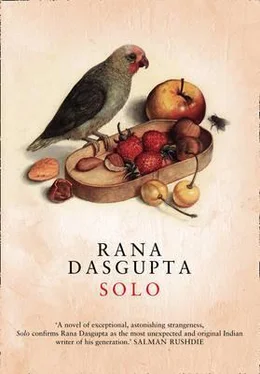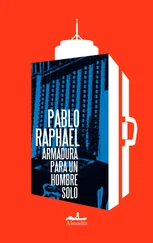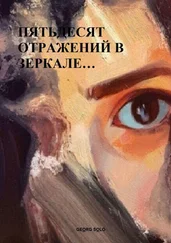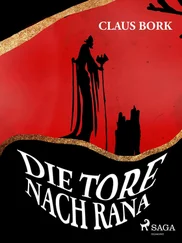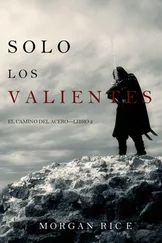This triggers something in Ulrich. He says he thinks he remembers, but he cannot be sure.
‘You must remember,’ she says. ‘He had a big shaggy mane in those days. When he competed in the Olympics his picture was plastered everywhere.’
His sports career put Mr Pavlov in touch with high-level party members and brawny men looking for jobs. He set up a number of gang operations, starting with extortion and protection, moving into gambling, drugs, prostitution, and expanding into hotels, real estate and construction. When the Bulgarian government began its privatisation drive in the early ’90s, he had become powerful enough to grab substantial chunks of industry for himself.
She sits back on a chair and lights a cigarette. Ulrich doesn’t like her smoking in his apartment, but he finds it difficult to say so. He’ll ask her to open the window on her way out.
Mr Pavlov had the wisdom to choose for his first wife the daughter of the chief of the Intelligence Service, which gave him access to the vast amounts of communist state capital that his father-in-law had transferred to his personal accounts after 1989. In collaboration with Andrei Lukanov, the former prime minister, Mr Pavlov siphoned money from state coffers to fund a conglomerate called Multigroup, which acquired hundreds of companies, including former state assets such as the flagship Kremikovtsi steelworks outside Sofia. Multigroup became the biggest business grouping in Bulgaria, running everything from food processing to gas, and quickly drew complaints from Bulgarian rivals and foreign governments for the violence of its practices. Though it has never been proved that Mr Pavlov was responsible for the assassination of Andrei Lukanov, he seized sole control of Multigroup immediately afterwards.
Ilia Pavlov divorced his first wife and married the owner of a modelling agency that supplied contestants to the Miss World and Miss Universe contests. His friendship with Miss Bulgaria 2001 added glamour and popular appeal to his image, as did his presidency of football clubs CSKA and Cherno More.
A bomb exploded under Mr Pavlov’s car in 1999, and he made attempts thereafter to improve his image. Multigroup withdrew from some illegal sectors and focused on tourism. Mr Pavlov gave money to restore old monasteries, and his wife suddenly became upset by the poor, and the plight of orphans.
Mr Pavlov was shot yesterday afternoon as he was leaving the Multigroup headquarters. The sniper found a gap between the four bodyguards and shot him once through the heart. His body has been laid out in the St Nedelya cathedral.
‘If you turn on your TV you’ll hear his whole life story again and again,’ she says. ‘The journalists are all tearful. They say the next Miss Bulgaria contest will be devoted to his memory. People really loved Ilia Pavlov.’
Ulrich says he cannot understand this.
‘People need saints,’ she responds.
‘But he was an appalling man!’
‘Our saints have always been thieves and murderers. That’s the proof of the loftiness of their hearts.’
He can hear her stubbing out her cigarette. He asks her to open the window, hoping she will take it as a hint. But she carries on talking gaily.
‘When they brought in communism it was for the people, so they killed the people. Now they’ve brought in capitalism it is for the rich, so they only kill the rich. This time you and I have nothing to worry about.’
She asks if he needs anything else. He says No , wanting to be alone to reflect.
He has become completely absorbed in thinking back over his life. Remembering, Ulrich realises, has its own pleasure, like spreading wings. The mind unfurls and proclaims its own sensuality — and sometimes it does not matter if the memory is bleak.
‘I’ll go and check upstairs,’ she says. ‘See if they’ve managed to break into the swimming pool. It’s so ironic, you see. Outside it hasn’t rained for weeks. But in our bathroom it’s raining day and night.’
19
THE THINGS THAT HAPPENED to Ulrich after his mother’s return from the camp are recorded in his memory differently from everything that went before.
He feels, in fact, that the environment turned hostile to the laying down of memories. Such slow sediment required a soft and stable bed, and he was too shaken up in those days by statistics, the roar of crowds, and bomb tests on the Kazakh steppe.
Ulrich remembers how he produced barium chloride in greater and greater quantities. That part is preserved. For everything around him had turned to chemistry, and his own production was part of something bigger than he. Bulgaria had become a chemical state: in the streets, there were posters of the nation’s chemical factories smoking in formation, like synchronised swimmers. The government issued chemical challenges to the workers, and the newspapers gloated over the achievements of famous Bulgarian chemists.
This development might have been Ulrich’s vindication, but it served instead to devalue the secrets he carried inside. Everything he had cherished as his own was taken away and turned into slogans.
It was the era of launching spacecraft, and when he thinks back, Ulrich sees himself as if from orbit. He can remember government statistics and the opening of new monuments, but he has trouble picking out what happened to him. His own figure is dwarfed amid the vaster wreckage: power plants and Georgi Dimitrov’s mausoleum. The might of Olympic wrestlers and Todor Zhivkov’s smile.
Sections of his life went missing, and there are decades he can hardly account for.
He remembers how a Soviet dyeing company wanted to obtain enormous quantities of barium chloride. Ulrich’s factory did not have spare capacity, and the Soviet company sent a delegation to discuss the plant’s expansion.
Ulrich went with Comrade Denov to the airport, and they waited on the tarmac. They saw the Aeroflot Tupolev touch down in the distance, and taxi slowly to its place. Steps were pushed against it, and the hatch popped open. The band began to play, and the Soviet visitors waited on the top steps to appreciate the coordinated kicking of the folk dancers.
Ulrich studied the distant faces of the Russians to see how it felt coming out of a plane, for he had never flown.
They descended with political smiles, and groups of dancers approached them with gifts of bread and salt while they shook hands with Comrade Denov and then with Ulrich. A young soprano from the conservatory sang a song of gratitude to Russian liberators.
The next day was a Sunday, and Ulrich had the responsibility of taking the Russians on an outing to Vitosha Mountain. Give them whatever they ask for , Comrade Denov had said. Don’t let them say a word against us . Ulrich arrived at the Pliska Hotel with a chauffeured car, and found them lively after their breakfast. The car drove them out of the city, up the wooded roads towards Kopitoto. The Russians were bureaucrats, not scientists, and, to Ulrich’s disappointment, they could not bring news of chemistry. They seemed distracted, and Ulrich had the sense they were mocking him.
They stood in a line looking down on Sofia from the mountain. In the foreground were rows of birch trees, leafless at this time of year. Down below, the city was like a brittle ivory star, with points spreading along the highways, and Ulrich had to suppress the desire to reach out and smash it.
He asked the Russians why they were laughing.
‘Everything is so small here,’ they said. ‘Your city is like a village. And your mountain is just a hill.’
Over lunch, they asked what Bulgarians thought about Nikita Khrushchev and Dinamo Moscow, the football team, and Ulrich said he did not know what Bulgarians thought. The Russians ordered a succession of vodkas, and Ulrich grew worried about the bill he would present the next day to Comrade Denov. They went on asking him what Bulgarians thought about many other Russian things, and Ulrich realised that all questions had begun to sound to him like interrogation.
Читать дальше
Конец ознакомительного отрывка
Купить книгу
